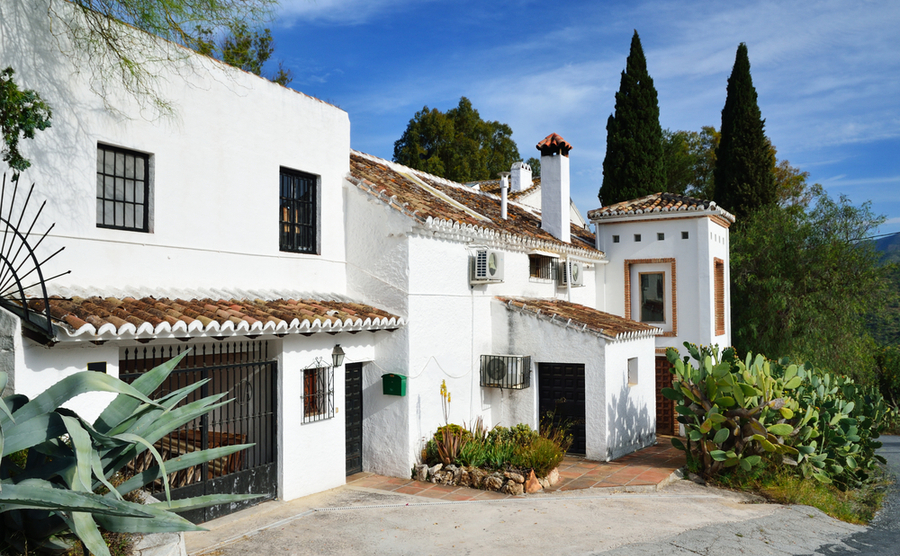Property owners in Spain must pay certain taxes, even if they are not a resident. How much tax you’ll pay depends on where your property is located, as each Spanish region sets its own rate.
So, if you’re looking to pay the least amount of tax, where should you move to? The answer appears to be Madrid…
Get in touch with our trusted solicitor today – they’ll help you to understand exactly what taxes you’ll need to pay in Spain.
Firstly, what taxes do Spanish homeowners have to pay?
The Spanish tax year runs from 1st January to 31st December, and the annual tax return must be made between 1st May and 20th June of the following year.
Wherever you are in Spain, if you own a property, you must complete a tax return each year. You will need to do this even if you are a non-resident or don’t rent out your property. This is because you will still earn ‘imputed income’ on your property and must therefore pay tax on it.
Thankfully, Spain has a double taxation agreement with the UK. This means you will never be taxed by the UK on any money that you have already paid tax on in Spain.
So, what taxes will you need to pay?
IBI (Impuesto de Bienes Inmuebles)
This is the main tax for Spanish property owners. It is similar to Council Tax in the UK in that the money goes towards maintaining the streets, the education system, local amenities etc.
The amount you pay is determined by your local town hall.
Waste collection and drainage (basura y alcantarillado)
Alongside the IBI tax, homeowners must also pay a tax that goes towards waste collection and drainage.

Wherever you are in Spain, if you own a property, you must complete a tax return each year.
Non-resident income tax
If you rent out your property, you will be taxed on your gross rental income. For EU citizens this is at a flat rate of 19%. For non-EU citizens, such as the British, you will be taxed at a flat rate of 24%.
If you don’t rent out your property, you will still be taxed on your ‘presumed rental income’. This is a fixed percentage (usually 1.1%) on the cadastral value of your property. EU citizens will pay 19% tax on that amount, while non-EU citizens will pay 24%.
Wealth tax
Spanish wealth tax must be paid by both residents and non-residents if their assets amount to more than €700,000. The amount you must pay is decided by the region your assets are in.
Transfer tax (ITP and AJD)
ITP and AJD are two taxes you pay if you transfer ownership of a second-hand property in Spain. It varies between 4%-10% depending on the region.
Inheritance tax
Also known as succession tax, this tax is paid when a Spanish property is inherited after the owner passes away. Both residents and non-residents must pay this tax, and how much you pay depends on the region.
Capital gains tax
The capital gains flat rate for non-residents in Spain is 19%. You will only pay this tax when you come to sell your Spanish property, and you will only be taxed on any profit.
Plusvalía tax
Plusvalía is the tax applied to the increase of the value of the urban land once a property is transferred, sold, inherited. Note that this tax is ONLY on the increase in urban land value, so, if your property is located in the countryside, you will not have to pay this tax.
Read your Buyers’ Guide to Spain for all the information you need about purchasing a property.
Which taxes are cheaper in Madrid?
The Madrid regional government has opted to lower some taxes. While many people have praised this approach, others have concerns around underfunding, less investment in public services and growing inequality.
Nonetheless, according to Spain’s National Statistics Institute (INE), which uses 60 indicators to compare the 17 autonomous communities, Madrid ranked seventh for quality of life.

The Madrid regional government has opted to lower some taxes.
Here are the taxes that are cheaper in Madrid:
Wealth tax
While regions like Valencia charge as much as 3.5% wealth tax, Madrid is the only region to have a 100% deduction. Essentially, this means that no matter how much your assets are worth, you will not have to pay any wealth tax on them.
Inheritance tax
Unlike wealth tax, Madrid does charge an inheritance tax. The good news, though, is that it is 99% deductible.
Transfer tax (ITP and AJD)
Madrid’s transfer tax is one of the lowest in Spain, at 6%. Only the Basque County is lower, at 4%.
IBI
Madrid’s IBI is one of the ten lowest in Spain and there are several deductions available.











